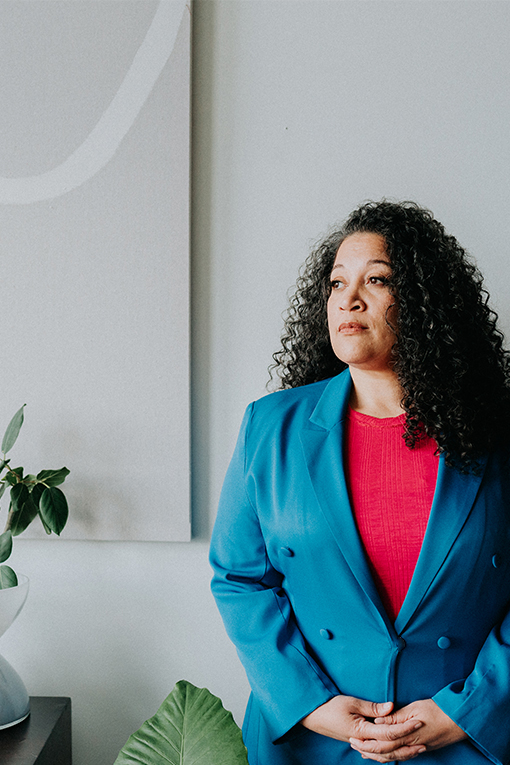
photo: Anastasia Creative
Trigger Warning: Some of the content in this article could be triggering for those with lived experience. Topics include gender-based discrimination and harassment, as well as the impacts of misogyny and rape culture.
Over five years ago, New York Times journalists Jodi Kantor and Megan Twohey, and the New Yorker’s Ronan Farrow’s explosive reporting finally made, the decades of sexual abuse by Hollywood mogul Harvey Weinstein and the complicity of many others public. This amplified the #MeToo movement, credited to activist Tarana Burke, highlighted the importance of TimesUp campaigns, and sent shockwaves across the industry in North America and across the world.
Many survivors came forward to share their stories of the rampant level of abuse and harassment. Survivors had experienced untold damage to their mental health and personal lives and were excluded from work opportunities. Some, particularly those who reported their abuse, lost their careers entirely.
Natasha Tony, Elevate’s CEO, long-time film industry professional and labour relations specialist, is all too aware of the challenges faced by survivors. Her expertise in respectful workplaces was in demand by several industry organizations wanting to respond to the #MeToo movement. Tony has built upon this expertise and developed a new training opportunity, Gender Equity for Film and TV for senior leadership, including producers, directors, writers, union leaders, funders, broadcasters, and board members.
The precarious nature of work in the industry, coupled with patriarchal dominance and authoritarian and hierarchical leadership as the “norm,” led to a toxic environment of fear on the part of women and other underrepresented communities. Leadership complicity or complacency about harassment compounded the problem. Of course, that poisonous culture was not new; it has been firmly embedded since the dawn of moving pictures.
The Weinstein case prompted many organizations to assess the extent of the problem within their orbit. The findings were disturbing.
In a Directors Guild of Canada (DGC) 2018 Listening Tour, many women reported recent sexual misconduct ranging from inappropriate comments of a sexual nature to assault by members of other unions, producers, and DGC members. The report points to a culture of fear of reprisal and belief that such behaviour will go unpunished.
In November of 2017, in an attempt to shift from such an unsafe workplace culture, Canadian stakeholders published a blueprint for future conduct in the industry. The aim was to ensure every workplace is one where safety, respect and professionalism are the norm. It states: “The Canadian Creative Industries Code of Conduct confirms our commitment to safe and respectful workplaces and to an industry free of harassment including sexual harassment, discrimination, bullying and violence.”
Half a decade later, we must ask, “Has safety, respect, and professionalism become the norm?”
There’s no doubt that awareness of the problems of gender bias and harassment has grown. Yet, studies indicate that the momentum for change has decreased while gender bias and instances of harassment continue to increase — without adequate systems in place.
A 2021 report by Hill Strategies on Sexual Harassment in the Canadian Performing Arts, Film, and Television Industries found that 87% of the respondents who started work after the #MeToo movement have experienced or witnessed sexual harassment. Of those, 82% had personally experienced sexual harassment multiple times. The perpetrators were managers, supervisors, and coworkers. Almost two-thirds reported suffering some type of reprisal – whether or not they reported an incident.
In addition to sexual harassment, 77% of respondents had experienced or witnessed different treatment based on sex/gender, including the quality or nature of work assignments.
The report’s authors make it clear: “There is a culture of misogyny in the film and television industry that has deep roots. This keeps women out of leadership positions throughout the industry. Female performers also have to deal with a general lack of respect for actors, as well as misogynistic scripts…. Without more women in leadership, behind the lens, writing the scripts, and literally calling the shots, sets will continue to be a tenuous place for women to work, no matter what workplace policies we adopt.”
The situation is even worse for women of colour. Racism and sexism are inextricably linked. This is illustrated by a 2018 study by the Canadian Reelworld Screen Institute. Despite their expertise, 82.9% of respondents believed their job to be more precarious than a non-racialized woman of similar experience. Also, 92% believed that Women of Colour in entertainment experience sexual harassment differently than non-racialized women.
The Reelworld study concluded, “Sexual misconduct is clearly prevalent in our industry. It is not limited to powerful producers or executives preying on young actresses. Crew and production members also act inappropriately and predatorily without consequence.” The Institute also states, “We cannot minimize the fear of retaliation that Women of Colour have if they were to publicly voice their concerns on how they are treated.”
That fear of reprisal was echoed more recently in the 2019-2020 Hollywood Commission survey across the entertainment industry.
The survey concludes that despite perceived progress, the industry has a permissive climate toward sexual harassment, workers don’t believe that powerful harassers will be held accountable or that reports will be taken seriously. It also found that most workers feel the industry does not value diversity, inclusion or respect.
Just as disturbing and interconnected to gender bias on production is the pervasive gender bias and discrimination shown on screen. This takes the form of an enduring failure to put diverse faces, bodies, genders, and abilities on the screen and, when actually doing so, often in a negative light.
Such failure of representation is clearly shown in the UBCP/ACTRA report, published in 2023. The report states: “For decades, research has demonstrated that media affect our perceptions of the world around us, the issues we view as important, our understanding of acceptable behaviours, the norms we do (or do not) question, and the lenses through which we view ourselves.”
The Canadian Black Screen Office (BSO) has produced reports documenting the failure to authentically represent people of colour, people with disabilities, and the 2SLGBTQIA+ community on screen. The BSO also clearly documents the additional struggles people of colour have accessing work opportunities and advancement within the industry.
As prevalent as the lack of representation of historically underrepresented groups on screen are storylines supporting rape culture, voyeurism and gender-based violence. This is an endemic feature of “entertainment” that must be addressed. Using powerful examples and resources, Elevate’s Gender Equity for Film and TV training illustrates the extent of this type of narrative and the damage it causes.
For industry workers at all levels to be safe and to have the opportunity to thrive and excel in their careers — the work must continue. This requires a deeper understanding by leadership of gender bias and discrimination, on and off the screen, and an authentic commitment to shift the culture in a meaningful and enduring way.
For more information on our training, click here or email [email protected]
